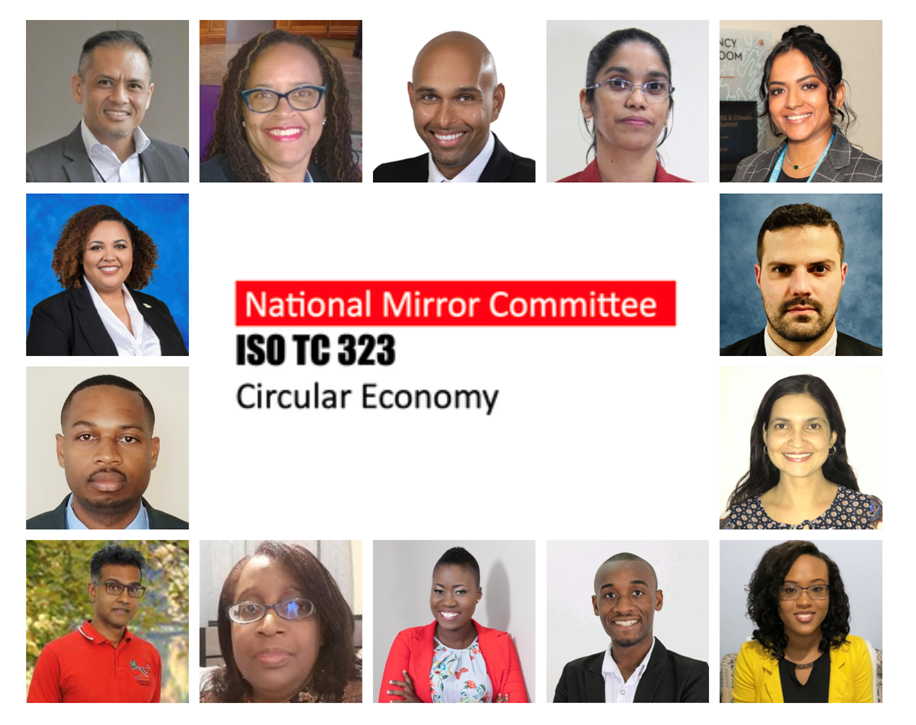
Mandate of TTBS
The Trinidad and Tobago Bureau of Standards (TTBS) is the National Standards Body, established with the legal mandate for developing and promoting the use of standards in order to, inter alia, protect health, safety and the environment and to promote industrial efficiency. The formulation of National Standards is a key component of the Bureau’s mandate given that such standards are normally subsequently utilized in its conformity assessment activities.
TTBS represents the country in standardization activities at the international level through full membership in the International Organization for Standardization (ISO). ISO is the world’s largest developer and publisher of International Standards and has a membership of approximately 160 member countries represented by their National Standards Bodies (NSBs). ISO has established a structure of Technical Committees (TCs), Sub-Committees (SCs) and Working Groups (WGs) that are responsible for the development of ISO Standards and other documents.
Overview of ISO/TC 323 Technical Committee on Circular Economy
ISO/TC 323 Technical Committee on Circular Economy was created in September 2018 to propose an answer to the global economy that is characterised as “linear”. This linear economy is mainly based on extraction, production, use and disposal. It leads to resource depletion, climate change, biodiversity losses, waste and pollution causing serious damage to the capacity of our planet to continue to provide for the needs of future generations. To meet our current and future human needs, there is an increased understanding that a transition towards a circular economy, based on a circular flow of resources, can create and share more value with society and stakeholders, while natural resources are managed and regenerated in a sustainable way, securing the quality and resilience of ecosystems. Some political, economic, technical, regulatory and legal dynamics promote circular strategies at many scales from global to national levels. The objective is to implement new modes of production that meet social dynamics which promote new modes of consumption.
Countries from all continents participate in the TC work. They produce documents designed to harmonize the understanding of the circular economy and to support its implementation and measurement. These documents support organizations, such as government, industry, and non- profit organizations in contributing to the achievement of the UN Agenda 2030 for Sustainable Development.
From 2019 to 2022, main TC objectives were to:
- Develop the first drafts of impactful standards that support and encourage organizations to adopt CE through a time-efficiency process; and
- Promote a broad and effective participation from countries all around the world.
From 2023, TC will reinforce the above 2 main objectives to publish the current set of documents by 2024. But the TC will also focus on:
- Communication to encourage the use of the standards to promote an alternative and collaborative model that facilitates the transition towards circular economy;
- High quality standards’ development for all types of stakeholders based on new topics related to CE while coordinating efforts and avoiding duplication of work and proliferation of divergent standards and other initiatives, for the net benefits of stakeholders worldwide.
Overview of TTBS’ National Mirror Committees (NMCs)
A National Mirror Committee (NMC) is a voluntary advisory committee established for the purpose of providing inputs into the development of standards and standards-related documents at the international level with a view to shaping the final documents to facilitate their use or adoption at the national level.
The NMC is therefore expected to formulate comments or positions on International Standards that represent the interests of Trinidad and Tobago’s stakeholders. This mechanism affords TTBS the opportunity to obtain expert advice on relevant issues during the development or revision process of International Standards that are then incorporated at the international level. The NMC also acts as a means of involving local experts in the development of these standards, that would assist to heighten the awareness of the importance of standards within the national community. It provides a mechanism for the international standards work to inform any related activity being undertaken at the national level.
TTBS’ National Mirror Committee (NMC) for ISO/TC 323 Circular Economy
The Trinidad and Tobago NMC for ISO TC 323 Circular Economy comprises of the following persons Mr Derek Luk Pat (Chairman), Ms Ryane Rollock – National Institute of Higher Education, Research, Science and Technology, Mr Richard Hector -The Trinidad and Tobago Solid Waste Management Company Limited, Mr Ronald Roach – Unite Caribbean, Mrs Frances Mitchell-Wanliss – Environmental Management Authority, Ms Sian Cuffy-Young – Siel Environmental Services Ltd, Mr Brian Benoit – Trinidad and Tobago Chamber of Industry and Commerce, Ms Leeooi-Oneika Howard – Trinidad and Tobago Chamber of Industry and Commerce, Dr Vandanna Singh-Bogers – Nestlé Trinidad and Tobago Limited, Mr Matthew Jardim – Nestlé Anglo-Dutch Caribbean, Ms Vandana Mangroo – Hello Green Ltd, Dr Azeena Ali – University of Trinidad and Tobago, Mr Barry Fakoory – Trinidad and Tobago Manufacturers’ Association, Ms Adrienne Stewart – Trinidad and Tobago Bureau of Standards. Missing from picture are Ms Sarah Ramlagan – Trinidad and Tobago Coalition of Services Industries, Mr Rayber Bowen – National Agricultural Marketing and Development Corporation, Ms Karlene Francois – Ministry of Planning and Development and Rakesh Seecharan – Ministry of Planning and Development.

